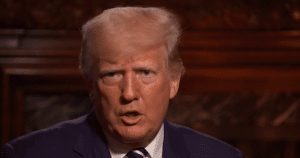Two Florida Republicans Look to Fill Senate Gap
Senator Marco Rubio is preparing to vacate his Senate seat to assume a position in President-elect Donald Trump's Cabinet, sparking interest among potential successors.
According to MSN, Representatives Cory Mills and Kat Cammack have indicated their interest in being appointed to the upcoming vacancy, but concerns about the impact on the House Republican majority loom large for Governor Ron DeSantis.
With Rubio's expected resignation, Florida politics are abuzz as potential candidates vying for his Senate seat. The key figures in the conversation include Representatives Cory Mills and Kat Cammack—both hailing from Florida and backed by strong Republican credentials. However, the decision to appoint either of these representatives is not straightforward, given the potential risks to the Republican majority in the House of Representatives.
DeSantis Weighs House Majority Impact
Governor Ron DeSantis is tasked with appointing Rubio's replacement and is acutely aware of the House dynamics. The Republican majority in the House, poised at 217-215, could be jeopardized by the departure of Mills or Cammack, especially after Reps. Elise Stefanik and Mike Waltz transition into the Trump administration. This precarious balance leaves DeSantis cautious about his decision, prioritizing maintaining the party’s position in the House.
In his public remarks, DeSantis acknowledged the challenges of keeping the legislative gears running smoothly. The governor's logic hinges on the potential risks of achieving the administration's agenda amid shifts in the House majority, signaling a complex decision matrix regarding the Senate appointment.
Strategies and Contenders for Rubio’s Position
Among the proposed candidates, Cory Mills recognizes DeSantis's concerns and suggests he may run for the Senate seat in 2026 if not appointed immediately. Mills has expressed that his alignment with Trump's America First agenda positions him as a valuable candidate for the Senate vacancy. Despite the uncertainty about the current appointment, Mills remains optimistic and respects the honor of being considered.
Meanwhile, Kat Cammack offers a pragmatic perspective on her potential transition to the Senate. She argues that the existing Republican majority dynamics are unlikely to experience significant disruption if she were to switch roles. Highlighting the need for unanimous support on major legislative pieces, Cammack believes that complexities in passing legislation would persist regardless of her position in the House or Senate.
The View from Tallahassee: DeSantis’s Decision
In developing the appointment strategy, Florida Attorney General Ashley Moody is emerging as a serious contender for Rubio’s replacement. While not framed as a definitive choice, DeSantis reportedly sees Moody as a leading candidate that could alleviate some pressures on the House majority.
DeSantis emphasized his criteria for the Senate appointment, underscoring the necessity of appointing someone capable of facilitating the incoming president's mandate rather than complicating legislative processes. This strategic mindset is crucial as the governor balances the scales within Florida’s political landscape and the federal legislative arm.
Timetable and Confirmation Uncertainties
While the timing of Rubio’s resignation remains uncertain, expectations suggest a swift confirmation process for his Cabinet role. The uncertainty surrounding official timelines compounds challenges for those involved, making the appointment process more complex amid broader political shifts.
Cammack reflects on her prospects, suggesting it is premature to make definitive plans for the Senate race in 2026. Her statements illustrate an understanding of the intricate dynamics in both chambers and underscore the importance of timing and strategy. Despite her cautious approach, Cammack remains open to future possibilities, stating their records have garnered respect within the political landscape.
Final Thoughts on a Critical Transition
As the discussions unfold, Republican leaders and potential candidates alike navigate a period of transition that could reshape Florida’s representation at the highest levels. The forthcoming appointment will significantly impact the state's political balance, potentially influencing national Republican strategies in the lead-up to future elections.
The decision over Rubio's replacement encapsulates a broader political calculation in Florida, one that underscores the delicate balance of maintaining legislative control alongside nurturing emerging political figures. With DeSantis’s decision looming, the stakes are high for all involved in this unfolding political narrative.




